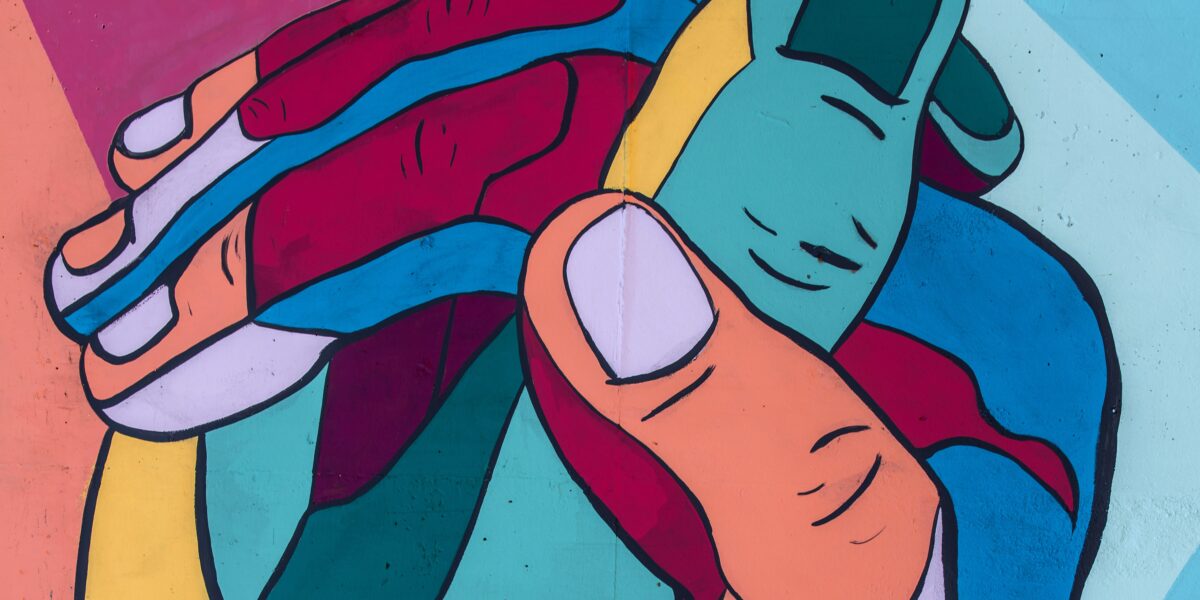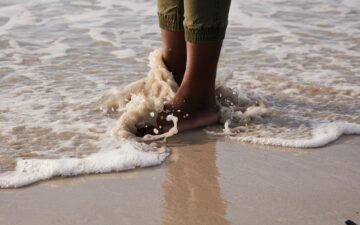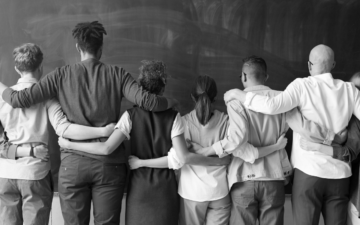Jordan Alexander Williams, is a Queer Hoodoo, earth tender & future ancestor, moving towards life and shaping change. Not only is Jordan all of the things above and more, but they are a friend of mine who lives their life unapologetically as they fight for universal justice. I was honored to discuss Jordan’s past and share the many insights that resulted from our 30-minute conversation. Thank you, Jordan, for sharing your story!
Take dive into our conversation below to learn more about Jordan Williams, their experiences, and theirs hope for the conservation realm regarding diversity, equity, inclusion, and justice:
Would you mind letting everyone know a bit about yourself?
Jordan: I’m Jordan Williams and I use they/them pronouns. Racialized as Black, I identify as an Afro-descended person and have recently been working to uncover my African lineages to understand something that is outside of and beyond the dominant narratives and practices — of traditional “western” ideologies — surrounding us, that have: 1) created the climate and ecological crises and, 2) continue the murder, incarceration, and dehumanization of Black people and people of color, amongst so much more. I’m proactively digging further into my lineages to reclaim and evolve the wisdom that white supremacy, colonialism, and patriarchy seek to keep me separate from. I understand that this ancestral wisdom is what connects me and my folks to the Earth and to each other, and has always played a central role in how I’ve navigated the world.
What caused you to become involved in the conservation sector?
Jordan: Ever since I was younger I felt this connection to the environment, nature, the outdoors, and animals. While I was afraid of most animals growing up, I loved them nonetheless. I was able to be a part of the Boy Scouts of America, which as a queer person and a comrade to Indigenous peoples of Turtle Island, I now find problematic. With that said, I value the time I spent in scouts in terms of it placing me in proximity to camping, fishing, and nature, which is where and how much of my conscious connection to the Earth began.
How did your transition from childhood and young adulthood shape you for your career?
Jordan: Both the boarding school I attended for high school and the university where I went to college were predominantly white, which ultimately prepared me to be one of the only Black students in my environmental science classes. Being in those spaces, I realized that there were so many messed up things, racist and homophobic people, and it framed the way I began to view the world as there were so many injustices still prevalent. As I went through college, I realized that I still cared about the environment, but began to shift my focus to environmental justice –how do we understand the interconnected impacts of the ongoing climate catastrophe, toxic waste, apartheid, and more that have and continue to oppress and displace Black, Brown, Indigenous, and working-class communities? All of this has been happening since Turtle Island — so-called North America — was first colonized, and people are pretending that current environmental and conservation “solutions” are effective when they clearly are not and are a continuation of white supremacy and colonialism.
As our discussion continued, Jordan Williams became more passionate about sharing their experiences. The questions and responses that follow include valuable information and pose a few questions in which every organization should ask themselves. Jordan’s lived experiences at a young age heavily influenced their trajectory in life and has allowed them to take a no-nonsense approach when addressing these issues. Their experiences have allowed them to be insightful about the steps organizations are taking or the lack thereof.
What stood out most in your career experiences?
Jordan: The work I led in my first post-college experience involved asking questions to ensure decisions and activities in the management of small-scale fisheries were equitable and accessible for everyone within their community. Similar to my experiences in college, I saw that there were a lot of D.E.I.J. issues hidden under the surface at the organization I worked for and in their external facing work. For example, I was one of the leaders of our office’s diversity committee, not necessarily because of my qualifications, but because I was one of few people of color, and one of two Black people, in our office. While I felt an internal pull to move into this role, I wonder if I would have if there were other folks, particularly white folks, doing what needed to be done. It’s important that we stop leaning on people of color to be the most senior “experts” on D.E.I.J. Counteracting and uprooting institutional and systemic oppression, such as toxic workplace cultures requires more than inserting marginalized peoples into your organization to check a box for change. My experiences led me to question how organizations and institutions are shifting resources to drive change. I found it necessary to ask:
- Who is leading the organization?
- What do they look like?
- Are they willing to fundamentally restructure the organization?
- Are they willing to restructure themselves, their behaviors, their assumptions, and the ways they relate to those working with them, or even to step out of their positions of power to create the needed space for change?
Do you feel as though a lot of groups are willing to take accountability for the roles they play and from your perspective what could be done to progress?
Jordan: Understanding how power is currently being distributed across the organization is critical. More often than not, power is distributed solely across “leadership”, and where the power is being held is where change needs to happen! Organizational leaders, especially white leaders and especially leaders who are men and/or cis-gender must take this seriously.! There’s no “right way” to approach this, and while I could say training, it’s critical to figure out what works for your particular organization and implement it in order to reshape your organization’s culture and programs. I will say that bringing in an outside consultant can offer lots of good directions. This strategy is valuable because sometimes the folks closest to the problems, and/or who have been at it for a while, are unable to see where the watershed changes can occur, and by what methods. At the same time, how are the knowledge, experiences, and expertise of those in positions of less power able to be centered and elevated as valuable and vital? Of course, this requires resources – both funding and time – to be effective, which gets to the philanthropic components of D.E.I.J., as well as the need to center D.E.I.J. within your organization’s strategic plan. If this is truly a priority, it needs to be included in every single person’s monthly, quarterly, and annual work plans, or it frankly won’t happen. It must also be kept in mind the relative impact on Black, Indigenous, and People of Color, and other marginalized identities. Their work and the work white folks must hold are not necessarily the same.
This is great and there are so many nuggets you’ve dropped in our conversation today, can you provide any words of encouragement for black men or people of color currently or aspiring to be in the conservation space.
Jordan: It is our birthright to exist, belong, and be affirmed in all spaces. For Black folks across the gender spectrum, those who reject gender altogether, and anyone made to feel like they don’t belong, please know and believe that this is your right! First, I’d encourage them to find people who will build them up, support them, and provide resources to them. Identify your allies, the people you can trust, and those that are aligned with you. Secondly, have an idea of where you want to be and if that is not where you currently are, embrace it. You don’t owe anyone or any institution anything. Ultimately, it is important to figure out what is going to ensure your resilience so that you can continue the work of your ancestors, which includes the Earth itself. D.E.I.J. issues will not go away tomorrow, so in the interim, we have to figure out ways to continue on. It’s critical to regenerate yourself, sustain your energy, and stay true to your values. Determining what personal practices keep you strong, the people who will support you, and the spaces that recharge you, will allow you to remain resilient.
To close, in regards to diversity, equity, inclusion, and justice…what is a hope that you have for the conservation sector.
Jordan: For so long, Indigenous knowledge has been considered out-of-date or otherwise lacking in comparison to western thinking. I believe what we are finally doing as a western society and a global scientific community is understanding that these ancient, contemporary, and evolving practices of Indigenous communities are what will ensure that we are in a reciprocal relationship with each other and the planet. Now is the time for us to uplift and center unheard voices –those de-valued ways of thinking and being–that have always been moving us towards life and towards the future. The work doesn’t exist in silos, or in what politicians have created regulations for…it exists in what the people know, what they love, and what they practice.
After reflecting on this conversation, I continued to think about the concept of intersectionality and the importance of leadership buy-in. Both are necessary for appropriately acknowledging disparities & differences and changing an organization’s culture. As Jordan Williams stated, these issues will not go away tomorrow. There is work to be done at every level for true progress to be made, however, progress cannot occur unless we hold ourselves accountable for the issues we perpetuate. The Ocean Foundation is committed to building our organization to be more inclusive and reflective of the communities we serve. We challenge our friends across the sector to assess your organizational culture, identify areas for improvement, and take action.






